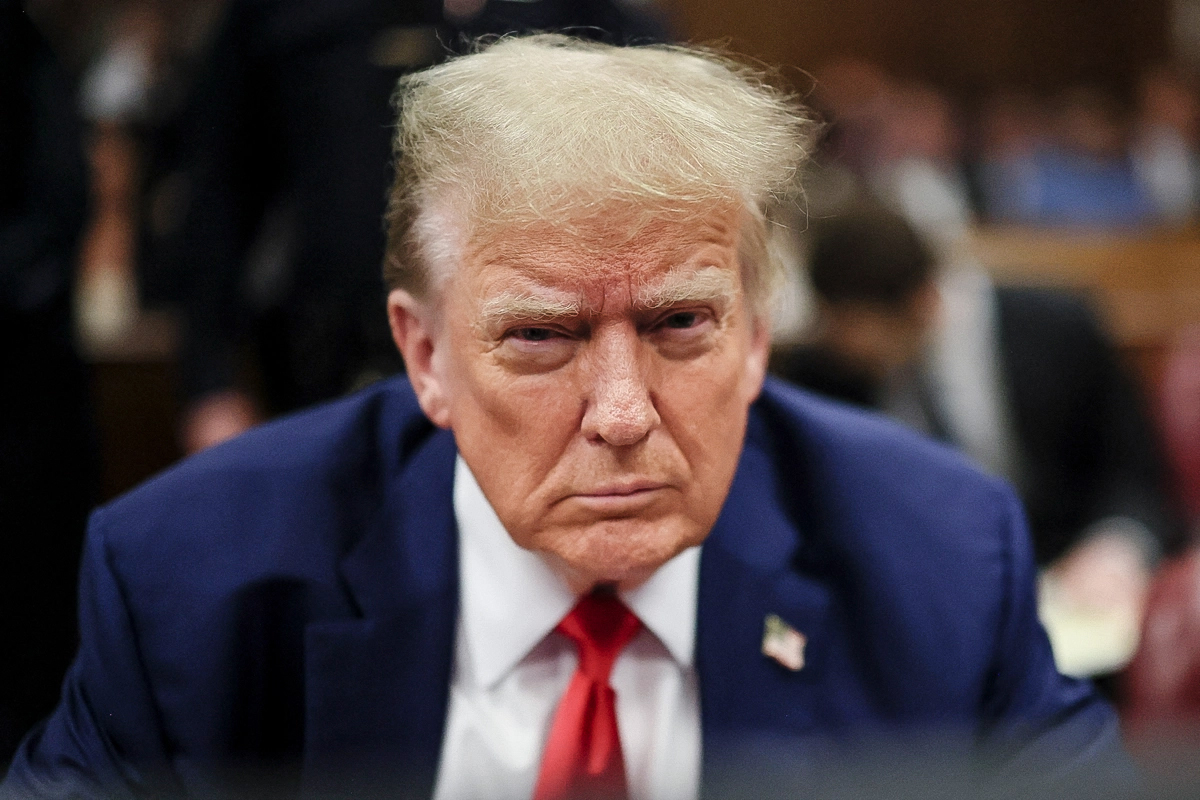Updated
Trump Signals He’s Willing to Risk Jail Time to Speak Out
Save

Former President Donald Trump attends his trial at Manhattan Criminal Court in New York City, on May 6, 2024. BRENDAN MCDERMID/POOL/AFP via Getty Images
Here is the latest
•
Trump on Jail Warning: 'I'll Do That Sacrifice Any Day'
•
Trial May Last 2 to 3 More Weeks
•
Sidebar With Judge
•
Tarasoff Seldom Crossed Paths With Trump
•
Tarasoff Testifies About Checks for Cohen